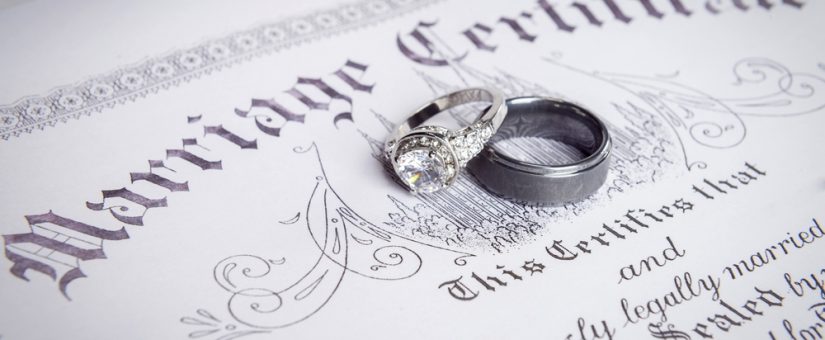
An antenuptial agreement, otherwise known as a prenuptial agreement or prenup, is a contract made between two individuals who are planning to get married. Antenuptial agreements are documents that set forth the rights of each spouse and the property division in the event of a divorce.
Antenuptial agreements can also address a number of issues that may not be covered in a will, should one spouse pass away during the marriage.
Antenuptial Agreements: In Depth
Antenuptial agreements take effect only if the two parties marry. The agreement will spell out the disposition of assets and liabilities in the event of a divorce, separation or the death of one of the parties.
These contracts will protect the pre-marital assets of one or both spouses. The agreement will outline what property, or properties, will be kept separate from marital properties, even if the properties are used by both parties during the marriage.
A prenuptial agreement can also help to protect assets from a previous marriage, ensuring that children from the previous marriage retain their interests.
With an antenuptial agreement, the division of property during a divorce is made simple: as long as the agreement was drafted properly, any non-marital assets (even if co-mingled) will remain non-marital assets.
While these agreements can be quite complicated, we at R. Leigh Frost Law, explain all steps to our clients. We offer the most qualified attorneys to review these documents before either party signs them.
Reasons for Antenuptial Agreements
Some people believe they can draw up an antenuptial agreement because they simply want to delegate certain duties within the marriage (such as which party will do what chores), or how many times they will have sex during a week. Such agreements are not enforceable.
At Segal Duffek Moen, we can advise parties of all their rights in regard to antenuptial agreements, as well as the types of conditions that should (and can) be put into the agreement.
It is important to note that if duress is involved in the signing or drafting of the agreement, the court can disregard all or part of the antenuptial agreement.
Prenuptial agreements can be used in a number of different circumstances. Sometimes parties with significant assets will want to draw up an antenuptial agreement in order to keep their money and property separate from their spouse’s.
Anyone who wishes to keep control of his or her assets and property in the event of a divorce will need an antenuptial agreement.
Tips for Antenuptial Agreements
When thinking about a prenuptial agreement, it is wise to draft the agreement and sign it, before the wedding invitations are sent out.
Each person should complete a Family Law Financial Affidavit and then notify the other party of exactly which assets and liabilities they have, as well as what these assets and liabilities are worth prior to signing the antenuptial agreement. If the court determines fraud was involved in this process, it may disregard all or part of the agreement.
Once it is drafted, each party will have an opportunity to take the antenuptial agreement to his or her own attorney to have it looked over. The agreement should be fair to each party at the time of signing, and it should be fair to both parties many years down the road.
Finally, make sure that the agreement is properly witnessed and properly executed. If not, the court may rule that it is invalid. If the agreement is deemed unfair or invalid, it can affect property division and spousal maintenance.
Find Experienced Family Law Attorneys in Minneapolis with Segal Duffek Moen
At Segal Duffek Moen, we are experienced in the Minnesota antenuptial agreements process and would be happy to advise you on your rights regarding them. Please contact us to answer any questions you may have about antenuptial agreements.

